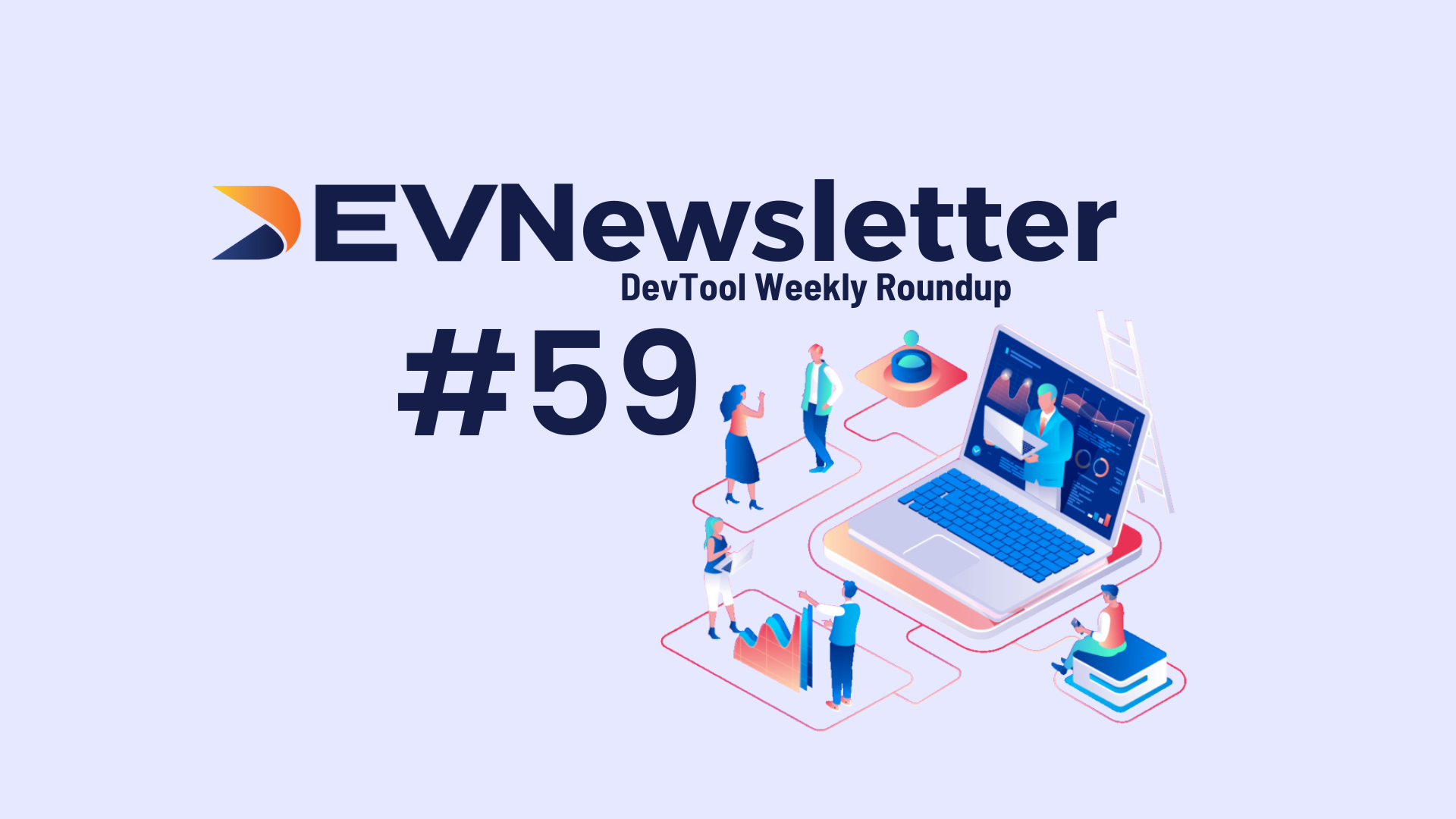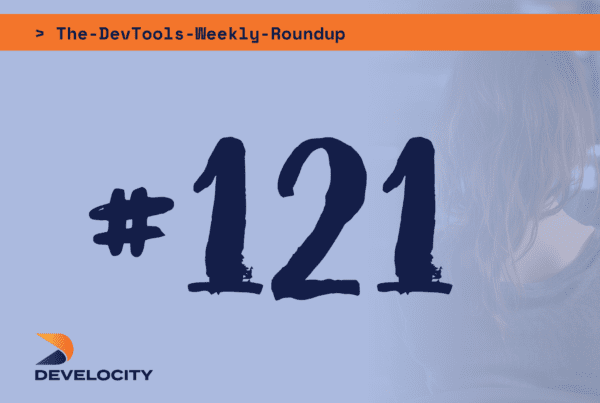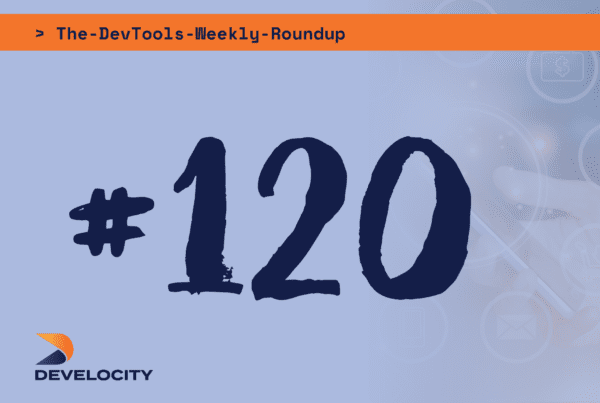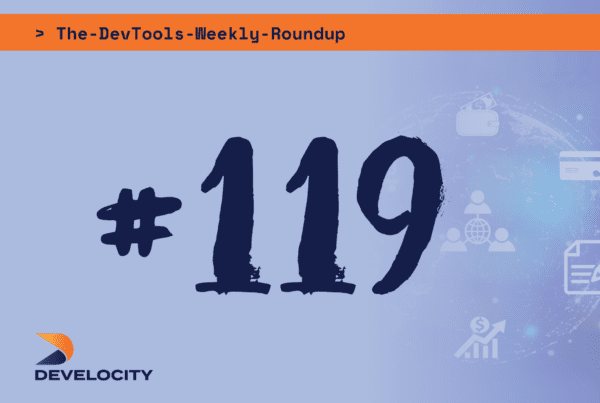Welcome to this week’s edition of the Develocity DevNewsletter! From exciting AI-driven tools accelerating development to key funding news reshaping the landscape of open-source security and Kubernetes, we’re highlighting the most innovative shifts in developer tools. PLUS we’ve highlighted 3 webinars centred about getting the most out of Generative AI, offering insights on how it’s reshaping platform engineering, machine learning and AI transparency.
Scroll on down!
🏆 Funding Wins
Patchstack Patches Together $5M to Fortify Open-Source Cybersecurity
Estonian cybersecurity startup Patchstack has raised $5M in Series A funding to further its mission of securing the open-source software landscape. Their platform helps developers identify and patch vulnerabilities in real time, protecting millions of websites, including those of GoDaddy and Digital Ocean. The round was led by Karma Ventures, with G+D Ventures and Emilia Capital joining in. Patchstack, co-founded by Oliver Sild and Dave J., plans to expand its offerings to meet the demands of the upcoming EU Cyber Resilience Act. Great work Patchstack!
Supermaven Snags $12M to Supercharge AI-Powered Developer Tools
Supermaven, a new AI coding assistant founded by Jacob Jackson—co-founder of Tabnine—has raised $12M to develop a cutting-edge text editor aimed at enhancing developer productivity. The funding, led by Bessemer Venture Partners, includes participation from OpenAI co-founder John Schulman and Perplexity co-founder Denis Yarats. With its AI model, Babble, and plans to revolutionize text editing for large codebases, Supermaven is already making waves with over 40,000 developers actively using its extensions. Truly amazing news for the devtool industry!
Campfire Sparks $3.95M Seed Round for AI-Driven Game Engine
San Francisco-based Campfire (applied AI company) has raised $3.95M in seed funding to power its generative AI game engine, Sprites. Sprites allows developers to create AI characters with emotions and memories, bringing new levels of immersion to games. The funding, led by Y Combinator and backed by key gaming investors, supports the launch of Cozy Friends, an AI-native life simulation game. Co-founders Siamak Freydoonnejad and Sina Zargaran are pioneering this shift in gaming, blending AI and emotional intelligence for personalized player experiences. Congratulations Campfire!
Edera Elevates Kubernetes Security with $5M Seed Round
Edera, founded by Ariadne Conill, Emily Long, and Alex Zenla, has raised $5M in seed funding led by 645 Ventures and Eniac Ventures to redefine how Kubernetes and AI workloads are secured. Edera’s hypervisor technology offers container isolation without requiring hardware virtualization, solving the long-standing security challenges of multi-tenancy environments. Their unique approach integrates directly with existing infrastructure, saving companies millions in cloud costs. “Edera fills this gap by using virtualization to both reduce risks and, ultimately, reduce costs,” said Kubernetes co-creator Joe Beda, an angel investor in the startup.
🚀 3, 2, 1… Launches
Paige Takes the Frontend Spotlight for React Developers
The creators of Speck (YC W24) are back with Paige, an AI frontend engineer designed to help developers build React websites. Unlike other AI agents, Paige integrates directly into your existing codebase to modify and implement changes, saving valuable time. Founders Lucas Jaggernauth and Raghav Pillai built Paige to eliminate tedious frontend work like small CSS tweaks, allowing developers to focus on more impactful tasks. Paige generates components, writes tests, and even creates documentation. Head to their website to discover how Paige can streamline your development process.
Height 2.0 Elevates Project Management with Automation
Height has unveiled Height 2.0, building on its original project management platform with new autonomous features to reduce manual tasks. Founder Michael Villar shared, “I’m bad at project management…so much that I automated it.” While Height 1.0 focused on core project management, Height 2.0 introduces autonomous workflows like live product docs, auto-filled attributes, and bug triage to take project upkeep off your plate. Height 2.0 also enhances real-time collaboration with multiplayer documents and cursors. Explore the latest version to see how it improves project management.
Void Launches as the Open-Source Alternative to Cursor
Void (YC S24), co-founded by Andrew Pareles and Mathew Pareles, is an open-source AI code editor offering a more privacy-conscious alternative to tools like Cursor. With Void, developers can self-host AI models, keeping their data private, or connect directly to models like GPT or Claude. The platform includes features like file system awareness, fast edits across large codebases, and full control over prompt history. Curious about Void? Find out more about this exciting open-source project on their website.
CortexClick Tackles Developer Marketing with LLM-Powered Writing Assistant
Cortex Click has officially launched, offering an AI-driven platform that helps developers and technical teams produce high-quality marketing content. From blog posts to documentation, Cortex Click uses large language models (LLMs) to generate personalized, accurate content tailored to a company’s style and voice. Built by Evan Boyle and the team, the platform addresses a critical challenge many technical founders face—scaling content creation while maintaining quality. Leading startups like Temporal and Pulumi are already using it to produce content faster and more effectively. Ready to level up your content?
Superflex Brings Speed to Front-End Development with AI-Powered VSCode Extension
Superflex has launched on Product Hunt, offering developers a powerful VSCode extension that builds front-end features directly from Figma files, images, and prompts. Founded by Aibek Yegemberdin and Boris Janković, Superflex leverages AI to follow your coding style, design standards, and reuse existing UI components, helping developers write code 10x faster. With its latest update, Superflex now also supports refactoring and debugging, making it a game-changer for front-end engineers. Explore how Superflex can speed up your workflow and upvote them on Product Hunt!
Mistral Unveils Free Tier for Developers to Test AI Models
Mistral AI has introduced a new free tier, giving developers the ability to fine-tune and prototype with their AI models at no cost. This launch is part of Mistral’s effort to compete in the increasingly commoditized AI space, offering a simpler way to experiment with advanced LLMs through its platform, la Plateforme. Additionally, the company has reduced prices on key models like Mistral NeMo and launched Pixtral 12B, a multimodal model for text and image processing. With this update, developers can access powerful AI tools without the cost barrier.
Find out more and start building on Mistral
🔦 DevTools of the Week
DevToys: A Must-Have Multi-Tool for Developers
DevToys has rapidly gained a reputation as the “Swiss Army knife” for developers, offering over 30 tools that simplify everyday tasks, from JSON formatting to image compression.
Developed by Etienne Baudoux and Benjamin T., the platform is designed to save time and reduce friction by consolidating essential utilities in one place, eliminating the need to switch between apps, plugins, or websites.
After the initial success of their Windows-only app, the team saw growing demand for DevToys on macOS and Linux. In response, they rebuilt the platform from the ground up, launching DevToys 2.0 as a fully cross-platform tool, now available across all major operating systems.
With over 300,000 downloads and growing, DevToys continues to be a powerful, adaptable solution for developers worldwide. The latest version even allows users to add their own tools, making it more customizable than ever.
LiveCodes: Empowering Developers with a Browser-Based Code Playground
LiveCodes is a powerful, open-source playground created by Hatem Hosny that runs entirely in your browser, supporting over 80 programming languages and frameworks like React, Python, Go, and Ruby.
By allowing developers to code, compile, and test without the need for backend infrastructure, LiveCodes offers a unique, cost-effective solution to boost productivity, especially for those looking to experiment and learn without limitations. Unlike other code playgrounds that require paid tiers or server-based environments, LiveCodes runs everything client-side, enabling developers to focus on their work without worrying about server costs or limitations.
Recently, LiveCodes introduced its AI Code Assistant, a free tool that helps developers write and debug code with no account required. Hosny’s vision is to create a seamless, accessible coding experience for developers everywhere, making LiveCodes a standout in the coding community. With growing adoption, developers are starting to build entire projects on the platform, showcasing its versatility and power.
🖥️ Webinars: Generative AI Unleashed
Accelerating Effective Platform Engineering via Gen AI
Date: 1st October 2024, 6-7:30pm GMT
Hosted by Conflux and Robusta Dev, this webinar brings together experts Matthew Skelton, Natan Yellin, and Sarah Wells to discuss how AI is transforming platform engineering. Explore how AI can accelerate innovation by enhancing platform teams, particularly through the lenses of fast flow and Team Topologies. If you’re interested in optimizing platform engineering for your organization, this is a can’t-miss session.
Build Highly Accurate Machine Learning Models Faster with AI
Date: 25th September 2024, 11-11:30am PST
Kumo.AI’s Co-Founder and VP of Engineering, Hema Raghavan, hosts this exclusive session on how AI is changing the game in machine learning. Learn how AI can speed up your model development, helping to move data science projects into production faster. If you’re eager to level up your machine learning skills, this webinar is for you.
Generative AI Transparency: How AI-Powered Enterprises Stay in Control of Risk
Date: 26th September 2024, 6-6:30pm BST
Hosted by Credo AI, this session dives deep into the importance of transparency in AI systems, particularly under the EU AI Act. Join the conversation on AI governance, with real-world examples from companies like OpenAI and Microsoft. Whether you’re building or using AI, this webinar will help you understand how to manage vendor risk in your AI supply chain.
This edition of the newsletter has shown how AI is transforming the way developers work, from speeding up frontend coding and enhancing machine learning models to making project management more efficient. But it’s not just about faster tools—transparency and responsible AI are equally important themes. As generative AI reshapes tech, the focus on governance and innovation remains key. We hope you keep experimenting, learning, and growing with these tools!
And if you have any news to share, let one of our team know!
Team Develocity



